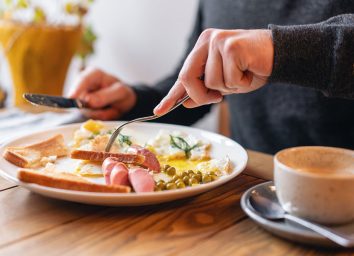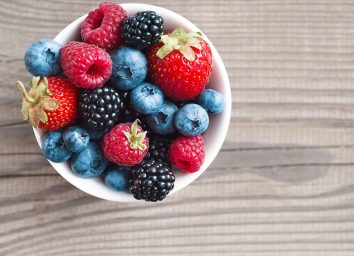Drinking Habits Experts Warn You Should Avoid If You're Over 50
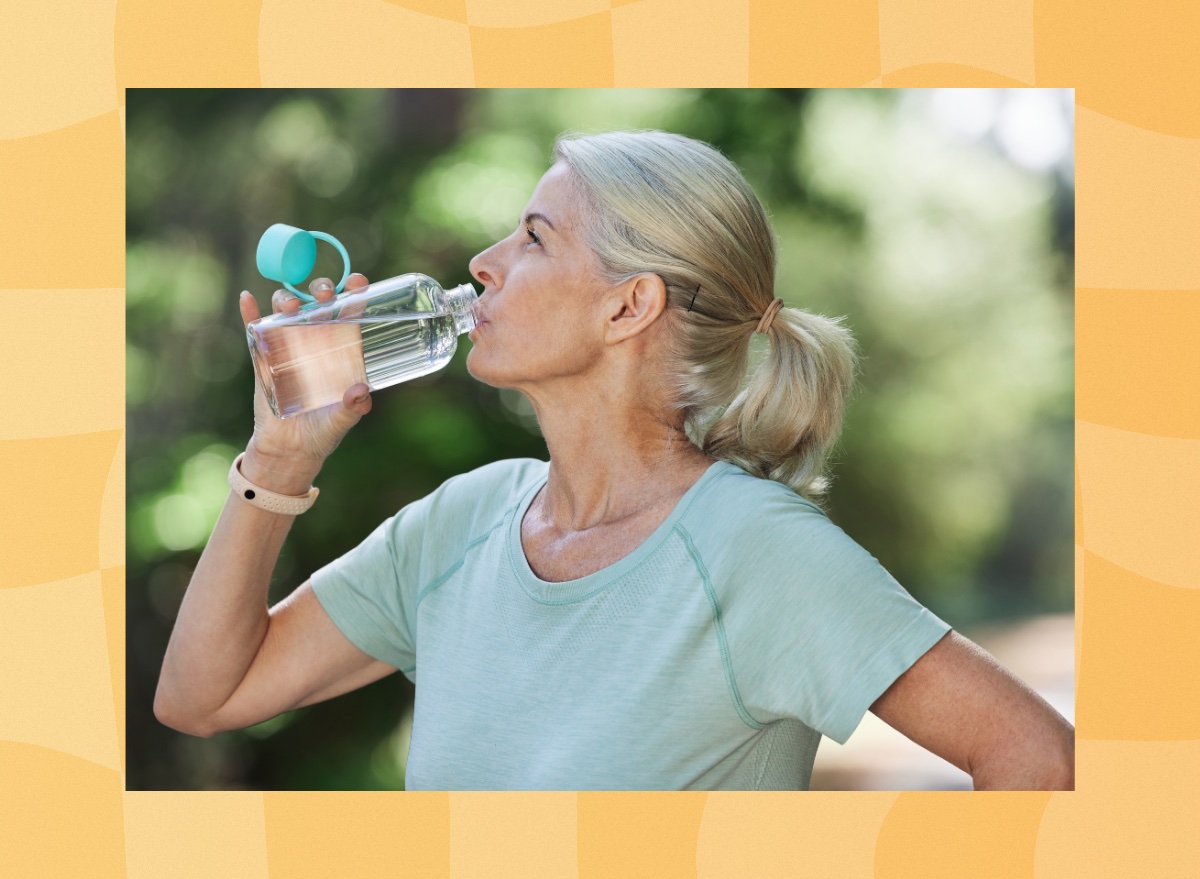
When you've got more than 50 years of life experience under your belt, you likely know a thing or two about your body and overall health. You may have realized that having a few glasses of wine hits you like a ton of bricks the next day, that vegetables actually taste pretty good when you know how to prepare them, and that what seemed like a minor indulgence in the moment can show up as major gains on the scale if you're not careful.
However, even if you think you're watching your food intake like a hawk, there's one thing you may be overlooking when it comes to your health: your drinking habits. If you want to improve your health fast, read on to discover which drinking habits dietitians say you should avoid if you're over 50. And if you want to revamp your eating habits, start with The 7 Healthiest Foods to Eat Right Now.
Drinking alcohol daily
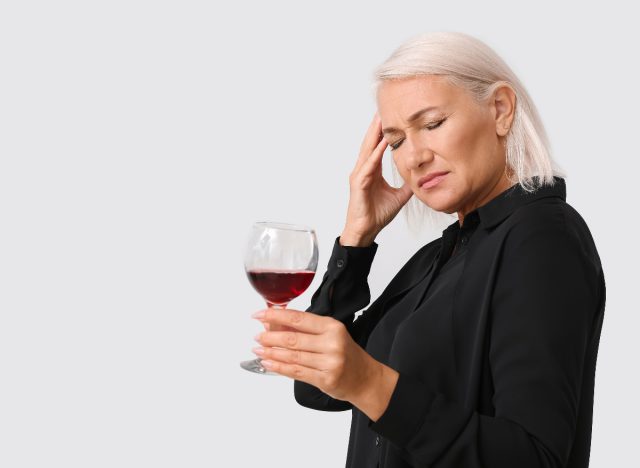
It's easy for that occasional cocktail to become a daily ritual, but doing so can have seriously harmful effects on your health, especially if you're over 50.
"Even alcohol options with no sugar may contribute to weight gain due to the fact that liquid calories lack fiber, protein, fat, or any nutrients that would contribute to feeling full and satisfied. This can lead to excess caloric intake and even skipping out on a more nutritious option in place of that second glass of beer or wine," explains Megan Roosevelt, RDN, founder of HealthyGroceryGirl.com.
And for more ways to improve your wellbeing, check out these Surprising Side Effects of Not Drinking Alcohol, Say Experts.
Drinking alcohol before bed
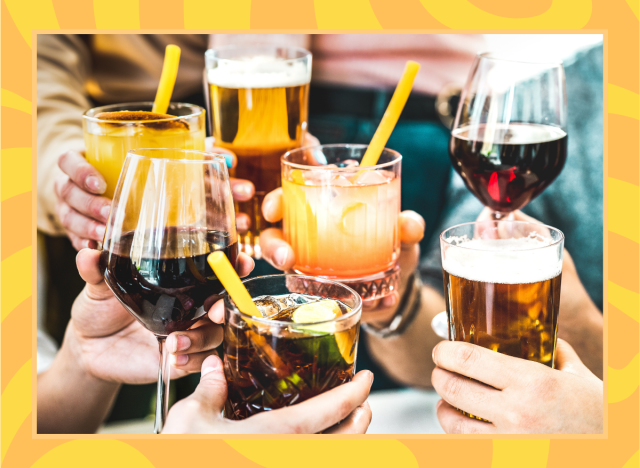
It's not just the calories in those alcoholic drinks you should be wary of. Despite making you feel tired, alcohol can have a profoundly negative impact on your sleep, too.
"Consuming too much alcohol before bed can reduce the quality of sleep, including REM sleep, or deep sleep. If you drink too much before bed, or even too close to bedtime, it can negatively impact your productivity the next day," explains Courtney D'Angelo, MS, RD, a registered dietitian and author at Fit Healthy Momma.
Drinking sugar-sweetened beverages

Those sugar-sweetened treats aren't doing your health favors at any age, and they're particularly bad for you if you're over 50.
"As we age, our cognitive function is at risk of decline. The good news is diet can influence how well our brain ages. Epidemiological as well as mice studies have shown that high intakes of refined sugar are associated with a decline in cognitive function; therefore, you may want to consider limiting refined sugar and sugar-sweetened beverage intakes as you age," explains Lacy Ngo, MS, RDN, author of The Nourishing Meal Builder, citing a 2018 study published in Nutricion Hospitalaria.
Drinking too many caffeinated beverages
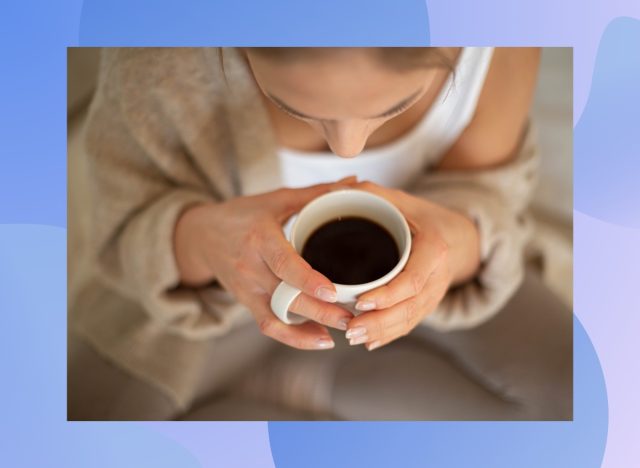
Even if you're not loading your coffee with sugar, excess caffeine can have a majorly deleterious effect on your health after 50.
"After 50, getting good quality sleep may be more challenging [and] caffeine can take up to about 10 hours to completely clear out," explains Keith-Thomas Ayoob, EdD, RD, FAND, an associate clinical professor emeritus at Albert Einstein College of Medicine. "Have a cup of coffee or tea in the morning, but then switch to decaf," Ayoob recommends.
For some more incentive to ditch those caffeinated drinks, check out these Side Effects of Giving Up Coffee, According to Science.
Drinking liquids too close to bedtime
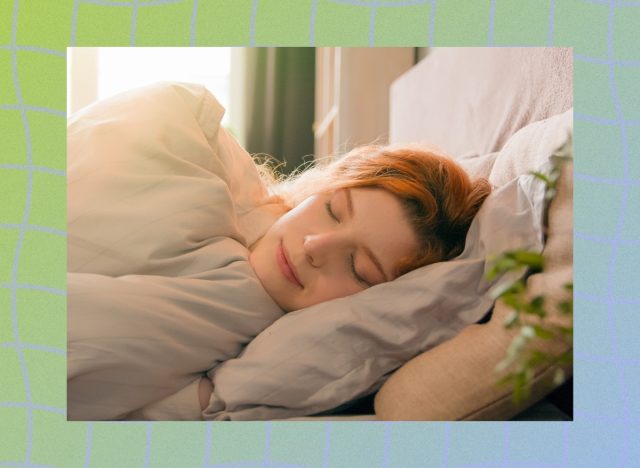
Having a few sips of water before bed may not do much harm but drinking much more than that could make a major difference in the quality and duration of your sleep.
"Men especially may find prostates enlarging, putting pressure on the bladder even when it's less than full. To reduce the number of times you have to get up at night to urinate, it can help to drink more liquids during the day, so there's less need to urinate overnight, disrupting sleep," says Ayoob, who recommends drinking only what's necessary to take any nighttime medications within two or three hours of bedtime.
Read this next:
- The Best & Worst Drinks on Shelves in 2021—Ranked!
- The Best Meal Plan If You're Over 50, Says Dietitian
- Secret Tricks to Looking Younger After 50, Say Experts
